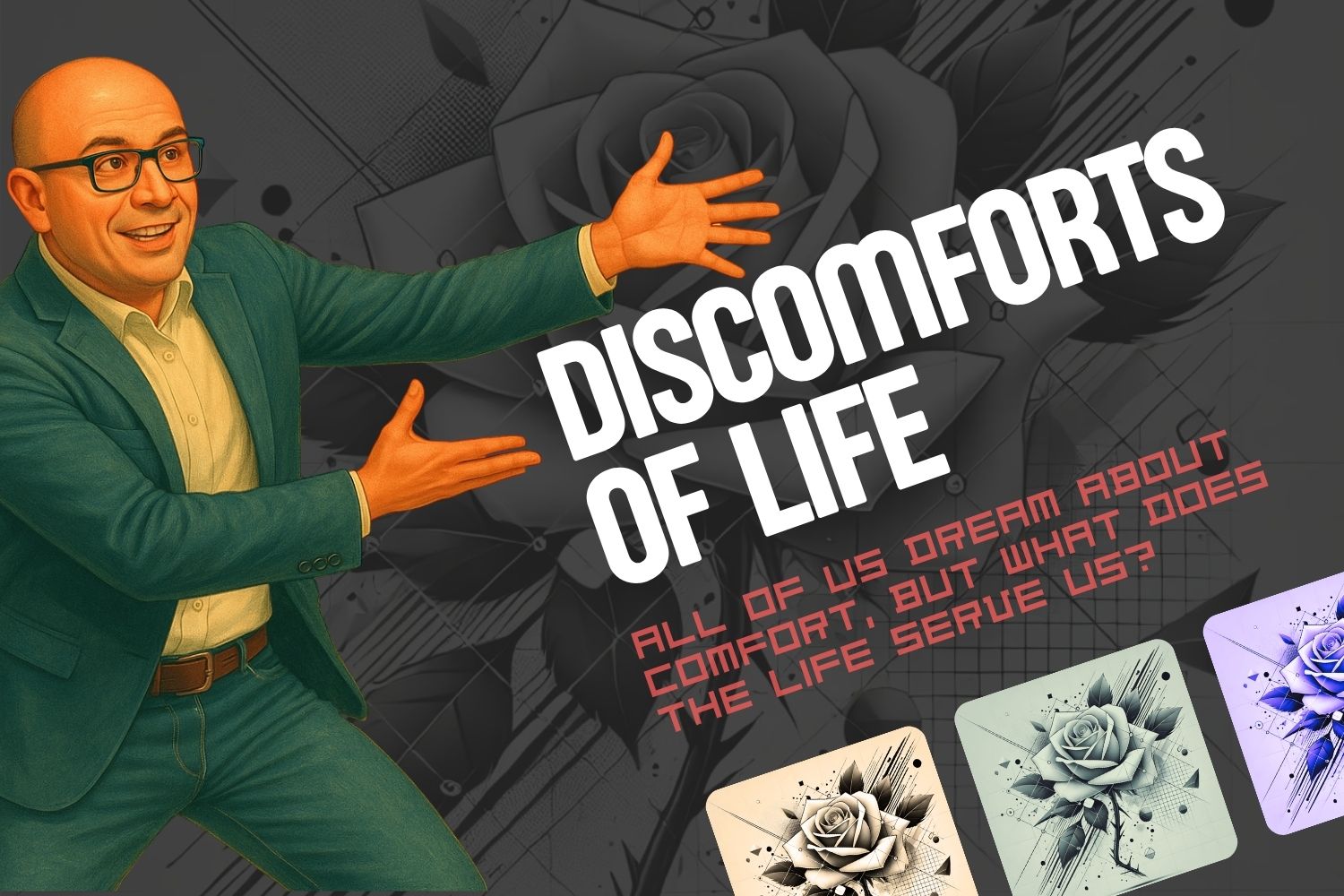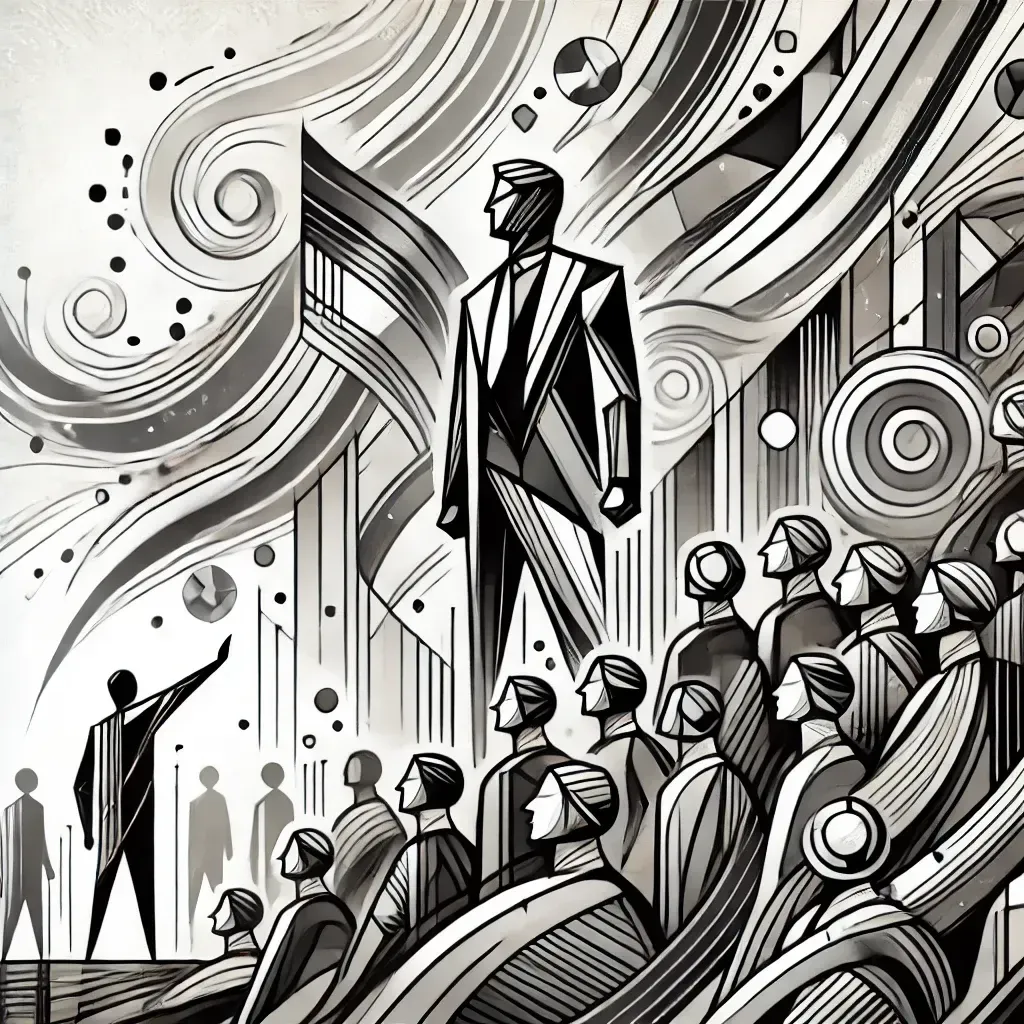If you think about it, all of us dream about comfort.
Happiness is comfort. Luxury is comfort. The perfect partner is comfort. Having wonderful kids is comfort. Everything we want from life is to give us some pleasure and/or peace (which are again a form of comfort).
And what does life serve us?
Problems. Adversity. Illness. Accidents. Hard work. Pressure. Stress. Naughty kids. Dominant parents. Heavy traffic. World hunger. Wars. Evening news. Belly fat. Hangovers. Sleepless nights.
Discomfort at its finest.
Apparently, we strive for comfort but most often than not we get some version of discomfort.
So, what to do?
Actually, you can do whatever you want. What I would do, though, is:
Leverage Pain
You will face a lot of pain in your life.
Instead of trying to avoid it or heal it, or soften it, embrace it. Focus on it and dive in it, make it your friend, explore it. When you grab it, it shrinks but if you ignore it, it grows. All those problems are not going to solve by themselves. You need to face and handle them personally.
Enjoy Uncertainty
Nothing is certain in life, so don’t live in an illusion.
Nobody knows what will happen next, though most of us are trying to plan and predict the far or near future. Keep your intentions about the future, but don’t expect that the Universe has the obligation to do as you have planned. Understand that the only certain thing you have is the uncertainty and approach the life as an adventure rather than a well-planned and smooth journey.
Put the Effort
You cannot achieve anything significant or meaningful without putting massive amount of effort.
If you don’t believe me, just check the background story of any sports victory, any invention, any successful company or a bestselling author. Be ready to put extensive effort if you want to get the things you want in life (most of which, by the way, are probably related to comfort). If something appears “easy”, “quick”, “simple”, “only…”, it is most probably fake, scam or lacks real value.
Accept the Limitations
We are unlimited and immortal souls but we live in a limited world, we manage bodies packed with limitations and we definitely cannot achieve everything we want.
The existence of limitations is not necessary a bad thing. If we want to focus on something, we need to cut everything else. If we believe in the unlimited opportunities, we will end up believing in impossible things which will lead us to indecision, daydreaming and dark disappointment.
“But all that sounds so dark and depressing”, you might say.
Not at all. (Or it does, but this is your problem as I think otherwise.)
If you stop reacting for a while, and take a deep breath, you will start thinking. Here’s what might come to your mind…
“All my life I am so afraid of pain in its different forms. What if I start liking it? What if we become friends? I will stop considering it as danger. It will look more like a signal or teacher. I can stop being afraid of it and this would let me do and achieve all the things I was afraid of doing. I would expand and grow. I will become more open and confident. I will become a braver and stronger version of myself.”
or…
“As uncertainty is all around me, if I learn how to feel comfortable in its presence, this means that I will be able to stay calm and confident while facing it. What does that mean? I will be able to operate smoothly and efficiently in situations when others freak out.”
or…
“Most of the people are lazy, distracted or both. If I am able to sustain significant amount of effort towards a meaningful goal, I will be able to outperform most of the people (if not all) and will make achieving the goal far more probable than while sitting on the sofa.”
or…
“It is comfortable to think that I can achieve everything I want. However, if I limit my options and select one thing, then enjoy the uncertainty, put the effort and embrace the pain of the mistakes, failures, criticism and adversity… My words and actions will have power and I will move forward, literally crafting my own destiny.”
Of course, all of the above could be plain wrong. Maybe you think so.
Don’t believe everything you think! (The book with the same title is just gorgeous. Read it.)
Have a wonderful day, full of adventure!






